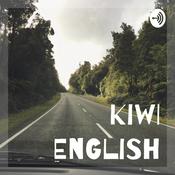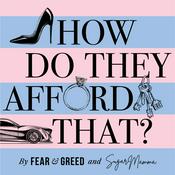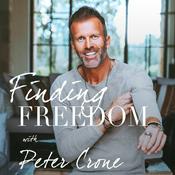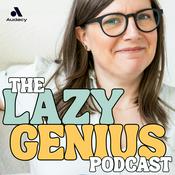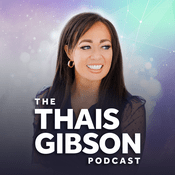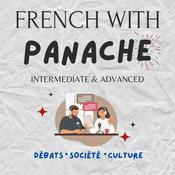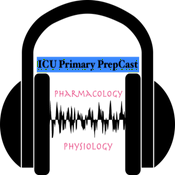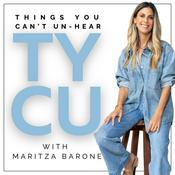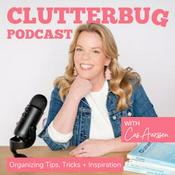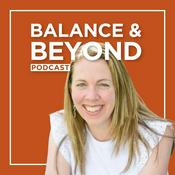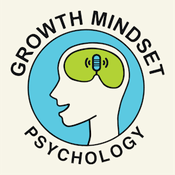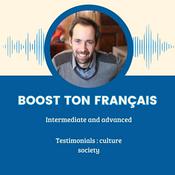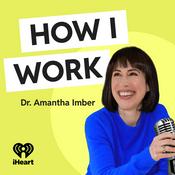12 episodes
- In this episode of Nature Conversations, I speak with Marie Taylor — a communicator, conservationist, and one of the most passionate advocates for native plants you’ll ever meet.
Marie runs her own native plant nursery, Plant Hawke’s Bay, where she not only supplies plants for large-scale restoration projects but also takes personal responsibility for propagating some of the rarest and most threatened species in existence.
With a background as a QEII National Trust regional representative and her current role as a QEII Board member, Marie brings a unique perspective that blends hands-on nursery work, community engagement, and conservation leadership.
Our conversation explores Marie’s journey, the critical importance of eco-sourcing, the challenges and triumphs of restoration projects, and what it takes to protect biodiversity in a rapidly changing world.
Summary
Marie has channelled her passion for nature into a career working across rural landscapes with a principled, hands-on approach — working tirelessly to conserve some of the rarest plants on earth. She takes a long-term view of restoration, carefully collecting and propagating our precious native flora, and ensuring that these species have a future.
But Marie is also deeply concerned about the alarming population trends of key species. She reminds us that their decline is a warning sign — a measure of the health and integrity of the ecosystems they inhabit. She highlights feral deer and other browsing animals as some of the biggest threats facing our native flora, and asks the uncomfortable but necessary question: Are we prepared to lose another species in the wild — and what is our strategy to prevent it?
Marie’s insights are a powerful reminder that when the ecological ‘canary in the mine’ begins to disappear, it is a call to act — not tomorrow, but today.
Marie, thank you for your work and your wisdom. Your passion for the land and its unique species is contagious, and it has never been more critical than it is right now.
Relevant links:
QEII National Trust
Te Mata Park
Plant Hawke's Bay
Hawke's Bay Regional Council Biodiversity
Biodiversity Hawke's Bay
About the podcast:
Hi! I’m Dr Adam Forbes. I am an Ecologist who specialises in the restoration of forest ecosystems. The Nature Conversations Podcast isn’t about me, however, the purpose of the podcast is to capture knowledge and insights from remarkable people and profile important issues for ecology and nature conversation.
Supporting the podcast and connecting with me:
If you like the content of the podcast, you can support its creation in the following ways:
1 – following, liking, rating and sharing the podcast or episodes with others,
2 – via my Patreon account (you can even support for free) https://patreon.com/DrAdamForbes
If you’d like to contact me, you can do so via email: [email protected] or via my website https://www.forbesecology.co.nz
You can also find me on socials:
Facebook - https://www.facebook.com/dradamforbes
Instagram - https://www.instagram.com/adamforbesnz
LinkedIn - http://linkedin.com/in/dr-adam-forbes-58873a55
Youtube - https://youtube.com/@dradamforbes?si=FzxXRUqdPd9zxPlE
Keyword
Marie Taylor interview, Plant Hawke’s Bay nursery, New Zealand native plants, native plant propagation, threatened species New Zealand, biodiversity conservation NZ, QEII National Trust, feral deer impacts NZ, rural landscape restoration, eco-sourcing native plants, ecosystem health indicators, saving endangered plants, nature conversations podcast, forest and wetland restoration, rare plant conservation NZ A Crisis of Imagination: Dr Mike Joy on Rethinking Water, Growth, and What Matters
23/7/2025 | 35 mins.In this episode, I’m joined by Dr. Mike Joy, one of New Zealand’s most respected and outspoken freshwater ecologists. A former dairy farm worker turned academic, Mike’s journey into environmental science was driven by what he witnessed firsthand—degrading waterways and the ecological cost of intensive agriculture. He went on to earn a PhD in ecology and freshwater biology and has since become a leading voice on the health of our rivers and lakes.
I speak with Mike about the state of Aotearoa’s freshwater systems and what they reveal about the way we live. We discuss the urgent need to change how we manage land, water, and resources in the face of climate disruption—and how systemic, rather than superficial, change is our best path forward. It’s a conversation about truth, courage, and hope for our environmental future.
Summary
Mike painted a sobering picture of the state of freshwater in Aotearoa—where three-quarters of our native freshwater fish are now threatened or at risk, and even our drinking water poses a risk to human health. The root causes are clear: the relentless intensification of dairy farming and an economic model that rewards pollution while ignoring the true costs of environmental harm.
Mike challenges us to flip the script—asking not how we can afford to change, but how we can afford not to. Prevention is not only better than cure—it’s far cheaper. His message is grounded in both science and common sense: reduce intensity, reduce harm.
More broadly, Mike questions our obsession with perpetual economic growth, reminding us that Gross Domestic Product is one of the most reliable indicators of environmental degradation. At the heart of it, this is a crisis of sustainability—but also a crisis of imagination.
A simpler life, lived within the limits of our energy and resources, can be richer, healthier, and more fulfilling. If we’re brave enough to let go of excess, we might just discover a better way forward.
About the podcast:
Hi! I’m Dr Adam Forbes. I am an Ecologist who specialises in the restoration of forest ecosystems. The Nature Conversations Podcast isn’t about me, however, the purpose of the podcast is to capture knowledge and insights from remarkable people and profile important issues for ecology and nature conversation.
Supporting the podcast and connecting with me:
If you like the content of the podcast, you can support its creation in the following ways:
1 – following, liking, rating and sharing the podcast or episodes with others,
2 – via my Patreon account (you can even support for free) https://patreon.com/DrAdamForbes
If you’d like to contact me, you can do so via email: [email protected] or via my website https://www.forbesecology.co.nz
You can also find me on socials:
Facebook - https://www.facebook.com/dradamforbes
Instagram - https://www.instagram.com/adamforbesnz
LinkedIn - http://linkedin.com/in/dr-adam-forbes-58873a55
Youtube - https://youtube.com/@dradamforbes?si=FzxXRUqdPd9zxPlE
Keywords
Dr Mike Joy, New Zealand freshwater crisis, Aotearoa rivers and lakes, intensive dairy farming impact, freshwater ecology New Zealand, climate disruption and water, environmental sustainability podcast, ecological collapse warning, systemic change vs superficial change, pollution and economic growth, GDP and environmental harm, sustainable land and water use, crisis of imagination, rethinking economic growth, climate change and agriculture, natural resource limits, drinking water safety NZ, regenerative environmental thinking, preventing environmental damage, truth about New Zealand’s waterways- In this episode of Nature Conversations, I sit down in person with renowned botanist Dr Hugh Wilson, the driving force behind Hinewai Reserve, a groundbreaking native forest regeneration project in New Zealand. For over 40 years, Hugh has championed a philosophy of minimal intervention, allowing nature to do the heavy lifting in ecological restoration. In our conversation, Hugh shares candid insights into the challenges, successes, and surprises of restoring 1600 hectares of former farmland. From battling bureaucracy to witnessing the return of rare species, Hugh’s story is one of perseverance, inspiration, and a deep trust in nature’s ability to heal itself.
Summary
Hugh has spent decades dedicated to ecological restoration, proving that nature itself is the most powerful force for forest restoration. At Hinewai Reserve, he has embraced a minimal interference approach, using gorse—a plant often considered a pest—as a natural nurse crop to protect young native seedlings. This method has successfully restored over 1600 hectares of native forest without the need for extensive tree planting.
However, Hugh’s journey has not been without challenges. He faced significant resistance from authorities who enforced strict noxious plant regulations, requiring a long battle to prove that gorse was actually aiding regeneration rather than hindering it. Pest control has been another ongoing struggle. While Hinewai has finally eradicated feral goats, the team is now tackling the impact of browsing deer, aiming for their complete removal to protect the young forest. A small handful of exotic weeds have been a concern, but careful management has helped prevent them from overwhelming native species.
Despite these obstacles, the project has been a resounding success. The most rewarding outcome for Hugh has been witnessing the remarkable natural regeneration of native forest cover. Thousands of visitors now explore Hinewai, providing enthusiastic feedback and drawing inspiration from the reserve’s transformation. Scientists and conservationists frequently visit to study the recovering ecosystem, and the return of rare plants and breeding native falcons highlights the project’s ecological significance.
Hugh’s core message is one of encouragement: let nature lead the way. He believes that for every tree humans plant, nature establishes a million more. While challenges like bureaucracy and moments of discouragement are inevitable, he urges others to trust in the resilience of natural systems. Every day at Hinewai brings new highlights, from unexpected plant reappearances to the joy of seeing his workers thrive in a deeply meaningful project. His work stands as a testament to what can be achieved when we step back and allow nature to restore itself.
And a huge thanks to Alison Evans for making this episode possible, travelling with me to meet Hugh at Hinewai! The bird song featured in the episode is a korimako/bellbird recorded in a māhoe tree while walking down the track to meet Hugh on the day of the interview.
Hope you enjoy this episode!
About the podcast:
Hi! I’m Dr Adam Forbes. I am an Ecologist who specialises in the restoration of forest ecosystems. The Nature Conversations Podcast isn’t about me, however, the purpose of the podcast is to capture knowledge and insights from remarkable people and profile important issues for ecology and nature conversation.
Supporting the podcast and connecting with me:
If you like the content of the podcast, you can support its creation in the following ways:
1 – following, liking, rating and sharing the podcast or episodes with others,
2 – via my Patreon account (you can even support for free) https://patreon.com/DrAdamForbes
If you’d like to contact me, you can do so via email: [email protected] or via my website https://www.forbesecology.co.nz
You can also find me on socials:
Facebook - https://www.facebook.com/dradamforbes
Instagram - https://www.instagram.com/adamforbesnz
LinkedIn - http://linkedin.com/in/dr-adam-forbes-58873a55
Youtube - https://youtube.com/@dradamforbes?si=FzxXRUqdPd9zxPlE Fire, Flora, and Flammability - A Conversation with Associate Professor Tim Curran
27/2/2025 | 54 mins.In this episode of Nature Conversations, I speak with Associate Professor Tim Curran, a plant ecologist specialising in plant flammability and extreme disturbance events like fire, drought, and cyclones. Tim discusses his work on measuring plant flammability and how plant traits influence fire behaviour, with a focus on identifying low-flammability species to create green firebreaks. These firebreaks not only help reduce wildfire spread but also support biodiversity restoration and ecosystem services. Tim highlights the historical shift in New Zealand's ecology, where fire was once less influential but is now exacerbated by climate change. As wildfires become more frequent, Tim stresses the importance of understanding fire behavior and taking proactive measures to mitigate risks. His work offers critical insights into fire management, plant resilience, and the future of fire science. Tune in for an in-depth conversation about plant ecology, fire risk, and climate change solutions.
Hope you enjoy this episode!
Links mentioned in the podcast:
Fire and Emergency Plant Flammability Database https://www.checkitsalright.nz/reduce-your-risk/low-flammability-plants
University Profile https://researchers.lincoln.ac.nz/tim.curran
SCION Rural Fire Research https://www.ruralfireresearch.co.nz
About the podcast:
Hi! I’m Dr Adam Forbes. I am an Ecologist who specialises in the restoration of forest ecosystems. The Nature Conversations Podcast isn’t about me, however, the purpose of the podcast is to capture knowledge and insights from remarkable people and profile important issues for ecology and nature conversation.
Supporting the podcast and connecting with me:
If you like the content of the podcast, you can support its creation in the following ways:
1 – following, liking, rating and sharing the podcast or episodes with others,
2 – via my Patreon account (you can even support for free) https://patreon.com/DrAdamForbes
If you’d like to contact me, you can do so via email: [email protected] or via my website https://www.forbesecology.co.nz
You can also find me on socials:
Facebook - https://www.facebook.com/dradamforbes
Instagram - https://www.instagram.com/adamforbesnz
LinkedIn - http://linkedin.com/in/dr-adam-forbes-58873a55
Youtube - https://youtube.com/@dradamforbes?si=FzxXRUqdPd9zxPlE
Key words:
plant ecology, flammability, fire behavior, plant traits, wildfire prevention, drought, firebreaks, New Zealand ecology, plant science, climate change, biodiversity restoration, fire risk, fire mitigation, green firebreaks, ecosystem services, Tim Curran, extreme disturbances, fire science, plant response to fire, wildfires, fire prevention, environmental scienceRestoring Waingake: Transforming Plantation Clearfells into Thriving Native Forests - A Conversation with Amy England
29/1/2025 | 31 mins.In this episode I’m speaking with Amy England who is the Regional Biodiversity Transformation Manager at the Gisborne District Council. Amy has had a career centered on conservation and has been central to the planning and delivery of the Waingake Transformation Programme. Amy is the perfect person to tell us all about this nationally significant restoration project.
Note: I have advised on this project as a professional ecologist.
I hope you enjoy this episode!
Links to Amy's work and the Waingake Transformation Programme:
Transformation Programme website - https://www.gdc.govt.nz/council/major-projects/waingake-restoration
Tane’s Tree Trust - https://www.tanestrees.org.nz
DOC Jobs for Nature - https://www.jobsfornature.govt.nz
MPI One Billion Trees - https://www.mpi.govt.nz/forestry/funding-tree-planting-research/one-billion-trees-programme/
QEII National Trust - https://qeiinationaltrust.org.nz
One Tree Planted - https://onetreeplanted.org/
If you'd like to make contact with Amy please contact the Gisborne District Council - www.gdc.govt.nz
About the podcast:
Hi! I’m Dr Adam Forbes. I am an Ecologist who specialises in the restoration of forest ecosystems. The Nature Conversations Podcast isn’t about me, however, the purpose of the podcast is to capture knowledge and insights from remarkable people and profile important issues for ecology and nature conversation.
Supporting the podcast and connecting with me:
If you like the content of the podcast, you can support its creation in the following ways:
1 – following, liking, rating and sharing the podcast or episodes with others,
2 – via my Patreon account (you can even support for free) https://patreon.com/DrAdamForbes
If you’d like to contact me, you can do so via email: [email protected] or via my website https://www.forbesecology.co.nz
You can also find me on socials:
Facebook - https://www.facebook.com/dradamforbes
Instagram - https://www.instagram.com/adamforbesnz
LinkedIn - http://linkedin.com/in/dr-adam-forbes-58873a55
Youtube - https://youtube.com/@dradamforbes?si=FzxXRUqdPd9zxPlE
More Education podcasts
Trending Education podcasts
About Nature Conversations: Dr. Adam Forbes Interviews the Experts
I’m Dr. Adam Forbes a forest and restoration ecologist. Join me as I capture knowledge and insights from remarkable people and profile important issues for ecology and nature conservation. Follow this podcast to hear unique content on our natural world, straight from the mouths of the experts.
Podcast websiteListen to Nature Conversations: Dr. Adam Forbes Interviews the Experts, Begin Again with Davina McCall and many other podcasts from around the world with the radio.net app
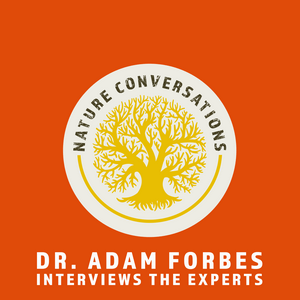
Get the free radio.net app
- Stations and podcasts to bookmark
- Stream via Wi-Fi or Bluetooth
- Supports Carplay & Android Auto
- Many other app features
Get the free radio.net app
- Stations and podcasts to bookmark
- Stream via Wi-Fi or Bluetooth
- Supports Carplay & Android Auto
- Many other app features


Nature Conversations: Dr. Adam Forbes Interviews the Experts
Scan code,
download the app,
start listening.
download the app,
start listening.



